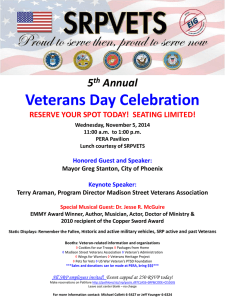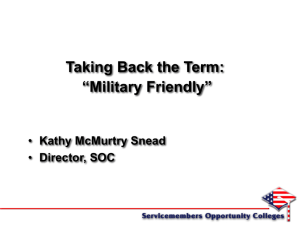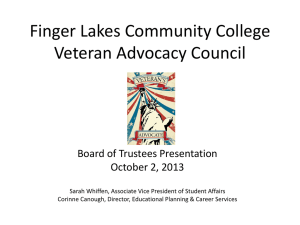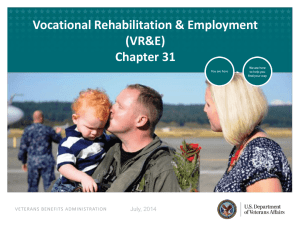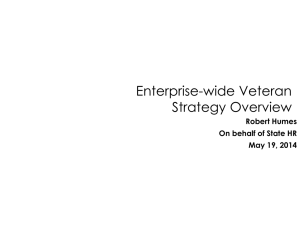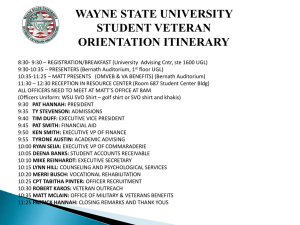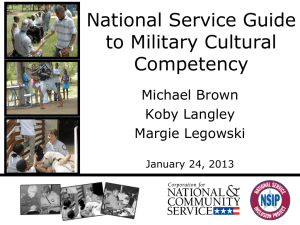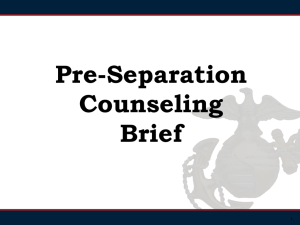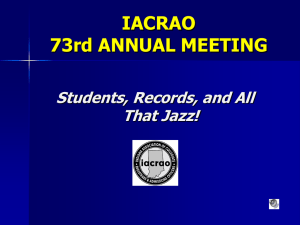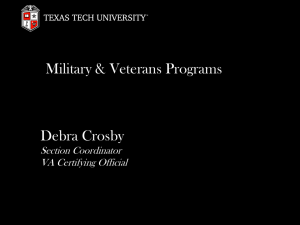Rethinking the Philosophy of “If you build it, they will come”
advertisement
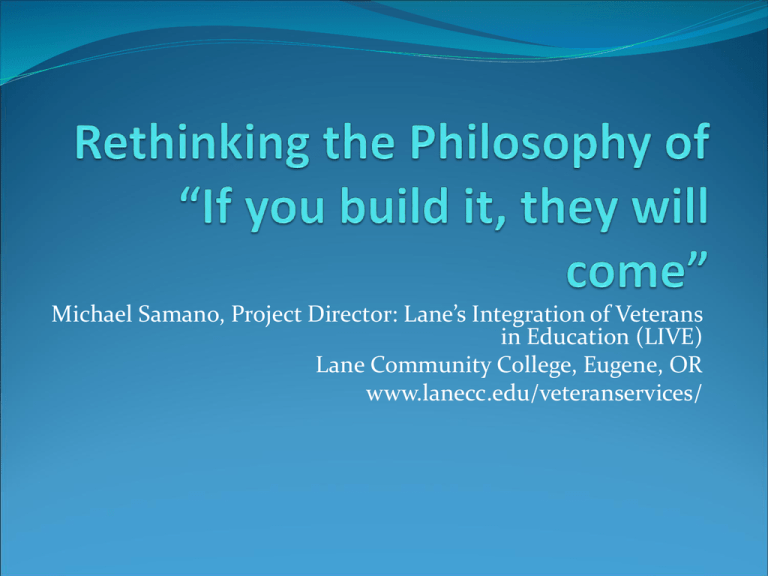
Michael Samano, Project Director: Lane’s Integration of Veterans in Education (LIVE) Lane Community College, Eugene, OR www.lanecc.edu/veteranservices/ The focus of this presentation is on the philosophy driving our efforts to enhance and support the learning experiences of student veterans, National Guard, reservists, and their family members at Lane Community College in Eugene, OR. The more traditional position of colleges and universities was that a campus would be built, a reputation developed, and if students wanted to enroll and engage in scholarly pursuits, they would find a way to show up. A more contemporary position of colleges and universities focuses on outreach. Originally, outreach efforts focused on the offspring of wealthy alumni, selected student scholars, and athletes. Now, as a result of various reasons, there has been more of an emphasis to do outreach or extend an invitation to various nontraditional student populations. Regarding veterans, National Guard members, reservists, and family members, this philosophy of outreach is no different. Instead of the old way of thinking, “If you build it, they will come.” We are actively engaged in inviting people to consider spending time on our campus. Using this philosophy of outreach also influences how we regard and treat student veterans. For me, the old “If you build it, they will come,” also means, colleges and university staff and faculty can treat students as numbers, or statistics; more like a commodity. If we are engaged in outreach, or inviting people to come to our campuses as students, they become our invited guests. Hence, a more humane approach to teaching and student support services. In other words, with the impressive support mechanisms that many colleges and universities now claim to have in place (including ours), do we offer a wide array of services to student veterans to make us look good, or to really help them? Remember, for most of these students, they have traveled on a journey that kind of goes like this: civilian world – to – military world – to – veteran world. As returning or incoming students, these people are doing what? Adjusting? Readjusting? Transitioning? Reintegrating? Identifying what a student veteran is experiencing is not an exercise in vocabulary. Rather, in order to really refine a philosophy to serve student veterans, we must be clear on the life transition that they are engaged in. Consider that regardless of branch of service, or era of service, everyone who joins the military, goes through some sort of process to become a functioning person in the military. This process is the initial basic training that everyone must experience. Unfortunately, there is no such thing as “Reverse Bootcamp.” There is no process in which service members unlearn or undo the training that they have received while serving. One day you are in, the next day you are discharged. In this life transition back to civilian life, a person is not civilians, they are veterans. Since they can’t “go back” they must go forward with the life skills and experiences that they now pocess. With college students who are still under contract, they exist in a more marginal existence. Marginal in the sense that they have one foot in the military world, and one foot in the civilian/veteran world. So, on our college and university campuses, it is not enough to just wait for veterans to show up on our doorsteps. It is not enough to determine their “veteran status.” We have to practice a philosophy of outreach. We have to treat them as we would invited guests in our homes. Meaning, we have to treat them as individuals, with respect and dignity. In addition to critical thinking skills and other career related skills, we have an obligation to help student veterans learn and understand how to navigate veteran life and veteran culture. Teaching student veterans how to navigate veteran life and culture will help them in their healthy navigation and success on our campuses. Thank you. Please visit our website at www.lanecc.edu/veteranservices/ to learn more about our specific efforts to work with student veterans and their family members. Questions?


